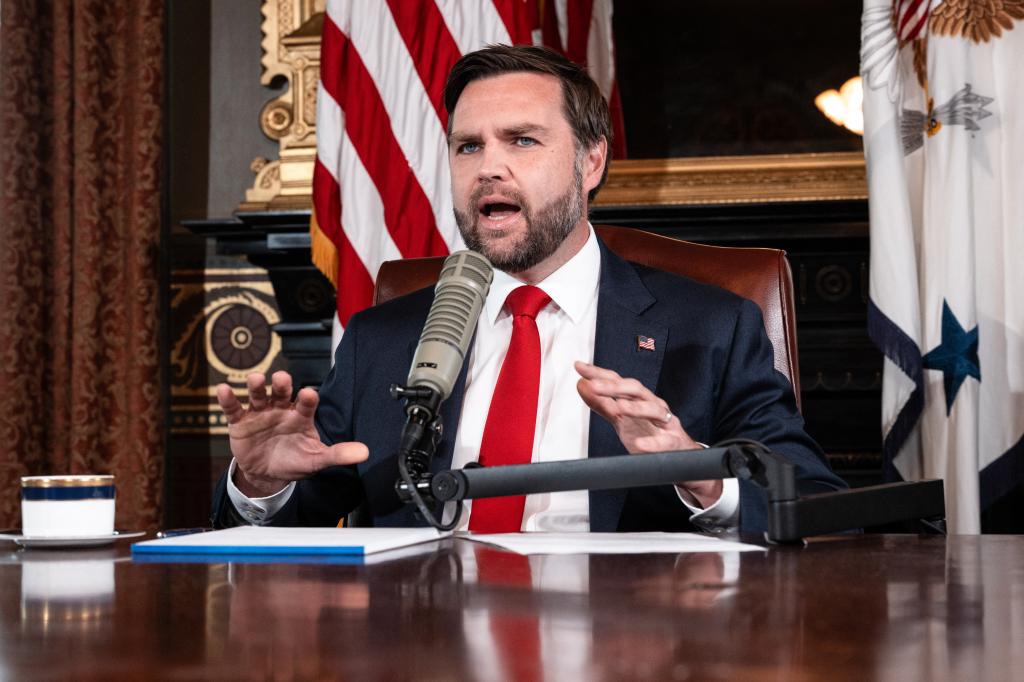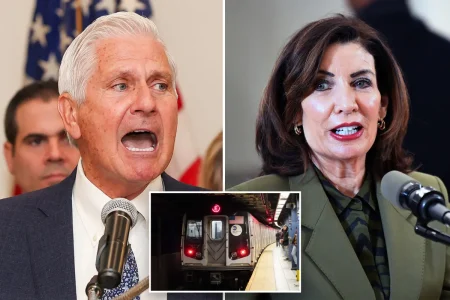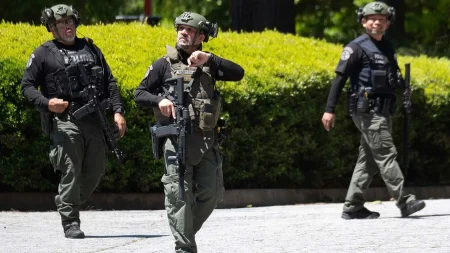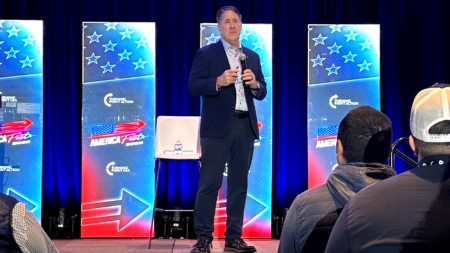Vice President Vance’s Heartfelt Tribute to Charlie Kirk’s Influence
In a poignant moment during a special episode of Charlie Kirk’s show on Monday, Vice President JD Vance shared a deeply personal reflection about the slain conservative activist’s impact on his political career. Speaking with White House Chief of Staff Susie Wiles, Vance made the remarkable acknowledgment: “If it weren’t for Charlie Kirk, I would not be vice president of the United States.” This candid admission revealed the profound influence Kirk had on Vance’s political trajectory, highlighting the often unseen relationships that shape American politics. Vance explained that he had been reflecting on Kirk’s role in his rise to the vice presidency in the days following Kirk’s death, recognizing him as “maybe the most important person” not only in securing the election victory but in helping Vance secure the vice-presidential nomination in the first place.
The vice president’s tribute emphasized the crucial grassroots support that Kirk mobilized on his behalf, describing it as Kirk’s “grassroots army.” This acknowledgment offers a glimpse into the complex web of relationships and alliances that underpin political campaigns, particularly the power of grassroots organizing in contemporary American politics. While formal power structures exist within parties, Vance’s comments suggest that Kirk’s ability to rally conservative supporters played a decisive role in shaping the administration’s leadership. The vice president’s words paint a picture of Kirk as a kingmaker whose influence extended far beyond his public persona, wielding significant behind-the-scenes power in conservative political circles.
In his reflections, Vance was careful to note the formal decision-making process, adding, “Obviously the president makes the final determination.” However, he immediately qualified this statement by emphasizing, “but it takes a team, and Charlie was such an incredibly important part of that team.” This nuanced description reveals the delicate balance of power within political movements—acknowledging formal authority while recognizing the critical role of influential supporters and organizers. The vice president’s characterization of Kirk as an “incredibly important part of that team” suggests a collaborative relationship that transcended typical political alliances, pointing to a deeper personal and professional connection between the two men.
Perhaps most revealing was Vance’s conclusion that Kirk’s support was “one of the reasons why I feel so indebted to him.” This statement of personal obligation offers a window into the emotional and ethical dimensions of political relationships, suggesting that even at the highest levels of government, leaders carry a sense of personal debt to those who helped elevate them to power. The vice president’s use of the word “indebted” implies a relationship built not merely on political expediency but on a deeper sense of loyalty and gratitude. This sentiment humanizes both Vance and Kirk, suggesting that beyond ideology and political strategy, their connection contained elements of genuine interpersonal bonds.
The timing of Vance’s comments—during a special episode honoring Kirk following his death—adds additional emotional weight to his remarks. By choosing this moment to publicly acknowledge Kirk’s role in his political ascent, Vance transformed what might have been a standard tribute into a significant historical acknowledgment about the inner workings of his path to the vice presidency. The vice president’s willingness to credit Kirk so directly challenges the often self-aggrandizing narratives of political success, instead offering a more collaborative vision of how political power is achieved and maintained in contemporary America.
This brief but meaningful exchange between Vice President Vance and White House Chief of Staff Wiles thus serves as both a personal tribute to a fallen political ally and an important historical document about the behind-the-scenes forces that shaped the current administration. While the public will never know the full extent of Kirk’s influence or the private conversations that led to Vance’s selection as vice president, this candid moment provides a rare glimpse into the human relationships and personal debts that exist beneath the surface of American political life. In acknowledging his debt to Kirk, Vance reminds us that even at the highest levels of power, politics remains fundamentally a human enterprise built on relationships, loyalty, and gratitude.











